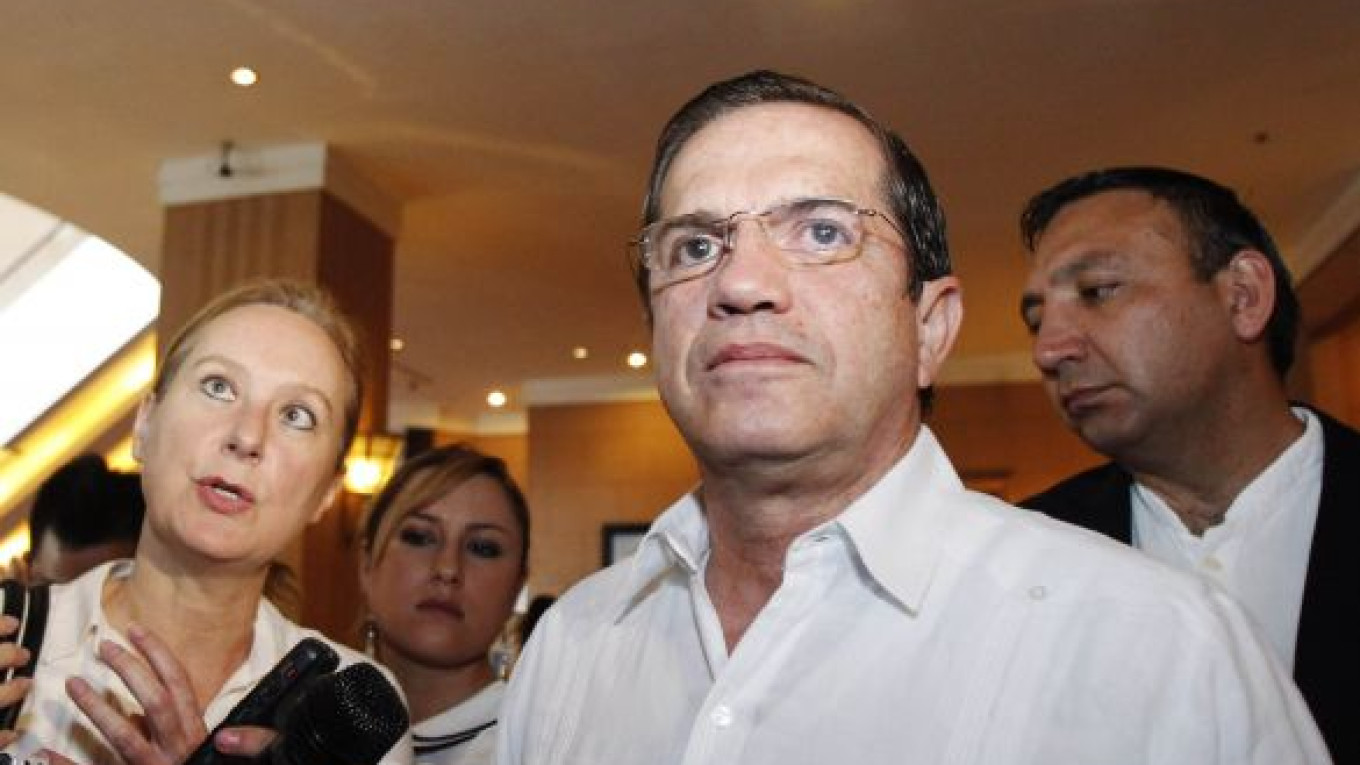QUITO — As Edward Snowden's stop-and-start flight across the globe appeared to stall in Moscow en route to Ecuador, the South American nation's foreign minister hailed him as "a man attempting to bring light and transparency to facts that affect everyone's fundamental liberties."
The decision whether to grant Snowden the asylum he has requested is a choice between "betraying the citizens of the world or betraying certain powerful elites in a specific country," Foreign Minister Ricardo Patino told reporters Monday while visiting Vietnam.
But what had been expected to be a straightforward journey has dissolved into uncertainty. Snowden did not use a reservation for a Havana-bound Russian airline flight on Monday that could have served as the first leg of a trip to safety in Ecuador, and his allies would not say where he was or what changed. Patino said Tuesday that he did not know Snowden's exact whereabouts.
In Washington, the White House demanded that Ecuador and other countries deny Snowden asylum. It also sharply criticized China for letting him leave Hong Kong, and urged Russia to "do the right thing" and send him to the U.S. to face espionage charges.
A high-ranking Ecuadorean official told Russia and Ecuador were discussing where Snowden could go, and the process could take days. He also said Ecuador's ambassador to had not seen or spoken to Snowden. The official spoke on condition of anonymity because he was not authorized to discuss the case publicly.
Ecuadoreans debated whether accepting Snowden would be a step too far for leftist President Rafael Correa, who has won wide popularity with oil-funded social and infrastructure programs while picking public fights with his country's main export market, the U.S. Correa has expelled U.S. diplomats, shuttered an American military base and offered refuge at Ecuador's embassy in London to Julian Assange, praising the founder of Wikileaks for publishing reams of leaked secret U.S. documents. Assange has embraced Snowden, and WikiLeaks experts are believed to be assisting him in arranging asylum.
With unprecedented international attention focused on Ecuador, many citizens said they felt giving asylum to Snowden would be courting trouble for no reason, particularly with a key U.S. trade agreement up for renewal in coming weeks.
"I think it's just being provocative," said Blanca Sanchez, 50, who sells cosmetics in the capital, Quito. "He needs to take responsibility for himself. This isn't our problem."
U.S. and Ecuadorean officials said they believed Snowden was still in Russia, where he fled Sunday after weeks of hiding out in Hong Kong following his disclosure of the broad scope of two highly classified counter-terror surveillance programs to two newspapers. The programs collect vast amounts of Americans' phone records and worldwide online data in the name of national security.
Assange declined to discuss where Snowden was but said he was safe. Assange said Snowden was only passing through Russia and had applied for asylum in Ecuador, Iceland and possibly other countries.
State Department spokesman Patrick Ventrell said the U.S. had made demands to "a series of governments," including Ecuador, that Snowden be barred from any international travel other than to be returned to the U.S. The U.S has revoked Snowden's passport.
Ecuadorean analysts said accepting Snowden could jeopardize tariff-free access to U.S. markets for Ecuador's fruit, seafood and flowers. U.S. trade, which also includes oil, accounts for half of Ecuador's exports and about 400,000 jobs in the nation of 14.6 million people.
At the same time, high oil prices, a growing mining industry and rising ties with China may give Ecuadorian President Correa a sense of protection from U.S. repercussions. Many of the Ecuadoreans who re-elected Correa in February with 57 percent of the vote see flouting the U.S. as a welcome expression of independence, particularly when it comes in the form of granting asylum.
"This person who's being pursued by the CIA, our policy is loving people like that, protecting them, perhaps giving them the rights that their own countries don't give them. I think this is a worthy effort by us," office worker Juan Francisco Sambrano said.
Related articles:
A Message from The Moscow Times:
Dear readers,
We are facing unprecedented challenges. Russia's Prosecutor General's Office has designated The Moscow Times as an "undesirable" organization, criminalizing our work and putting our staff at risk of prosecution. This follows our earlier unjust labeling as a "foreign agent."
These actions are direct attempts to silence independent journalism in Russia. The authorities claim our work "discredits the decisions of the Russian leadership." We see things differently: we strive to provide accurate, unbiased reporting on Russia.
We, the journalists of The Moscow Times, refuse to be silenced. But to continue our work, we need your help.
Your support, no matter how small, makes a world of difference. If you can, please support us monthly starting from just $2. It's quick to set up, and every contribution makes a significant impact.
By supporting The Moscow Times, you're defending open, independent journalism in the face of repression. Thank you for standing with us.
Remind me later.


